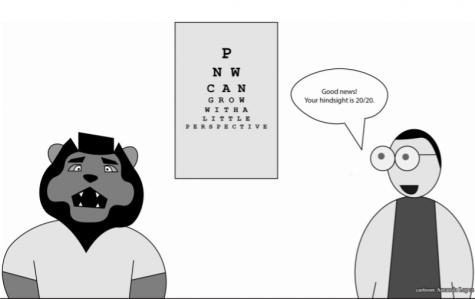Column: Why you should care about SGA elections
After seeing past Student Government Association elections, I was disappointed this year to see that many of the students voting and candidates running simply did not care.
To clarify, I have seen effort through the campaigns of the two students running for president, Dejoie Simmons and Anna Duley, and the two students who are running for vice president. My main complaints are with those running for senator positions, and the student response to the elections.
My first issue was with how this election was advertised. I received my first message about being able to vote 10 days before the polls closed. At this point, I did not know who was running let alone their stances. I started to actually look for flyers for people running, and sure enough there were a few here and there; however, several were not approved for posting, nor in the designated areas for posting flyers. Whether this was due to ignorance or laziness is unknown, but regardless it is against university policy.
When I cast my votes for president, vice president and my College of Business representatives, I was upset to see the lack of information for my representative choices. One had about a paragraph of information for me to peruse through, and the other had just his name along with an unprofessional picture. After talking to friends of mine from different colleges, I learned that they were experiencing the same thing. Although a representative does not hold the same authority as the president or vice president, they are still able to lobby for their respective college and its students. If I were running for senator for the College of Business (which I actually did in 2013, but had to drop out due to my position with the student newspaper), I would want to lobby for more alumni interaction for students so that they can find jobs and internships easier, and to argue for more possible electives to count towards my our majors. In about two minutes I concocted these two main goals, and jotted them down on a Word document, and I am not even running for senator. Much of the lack of interest in students running for SGA positions I feel is due to many students just losing interest in general. Although SGA should have given more time for students to vote for their officials, many students did not vote because they don’t check their student emails, or just simply do not care enough as they feel the SGA does not affect them.
Throughout my time as editor-in-chief, I have always made a point to become acquainted with each year’s Student Government Association president and the association itself. I consider last year’s Hammond president, Candice Ford, and this year’s Hammond president, Melissa Sida-Diaz, to be personal friends of mine. During her presidency, Ford was able to create a constitution for the future of SGA along with Westville’s president at the time Travis Ziegler. The two of them also did charitable work and were able to send money and clean water to Flint, Michigan, proof that the SGA can make a difference. Sida-Diaz and the Westville president, Zachary Jakubowski are working on admirable feats this year as well. For example, they were able to fix a hazardous crosswalk on the Westville campus.
During last year’s election, there was a large divide in the election caused by differences amongst the students running for president, and their supporters. Unfortunately, The Chronicle did not report on any of those issues, nor has The Pioneer reported on much SGA coverage this year. The lack of coverage is our fault, and our fault alone, but the lack of interest in SGA falls on the students. The SGA does have the power to enact actual changes to the university for the benefit of students and faculty members, and it is up to the students to care enough to not only speak up to their student government, but to care enough to elect officials.
I am hopeful that the new SGA president and vice president are able to spark new interest in what they do with the student population. This is done through more student engagement through small events and tabling. Members of SGA need to engage students and ask them what they feel needs to be changed or improved, and the SGA needs to ensure that voice is being heard.





